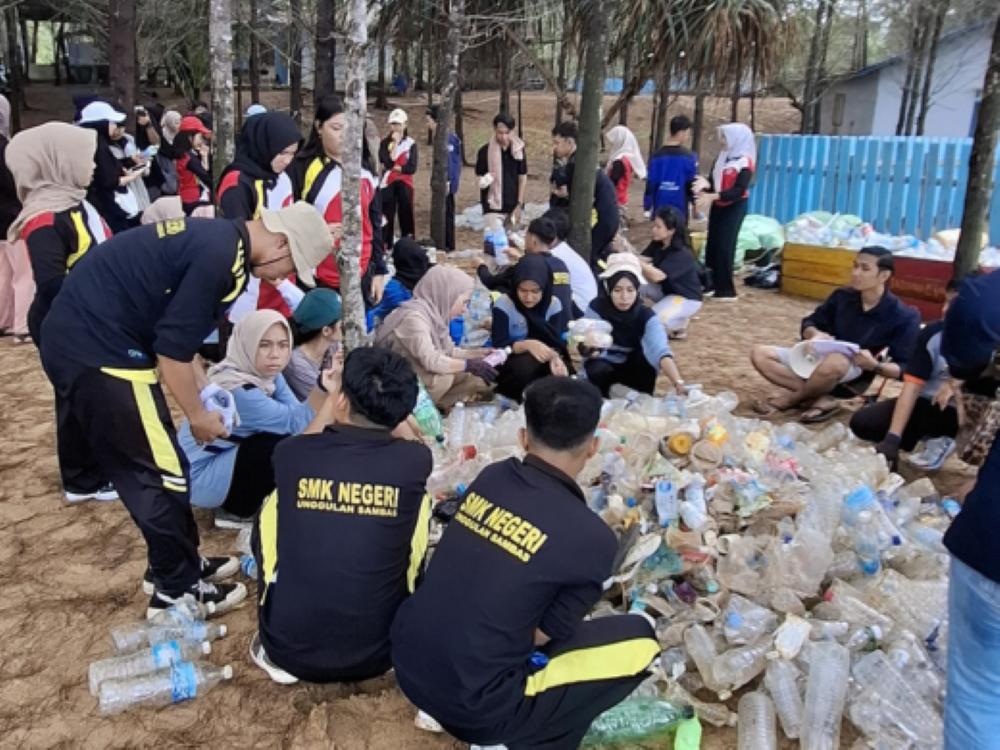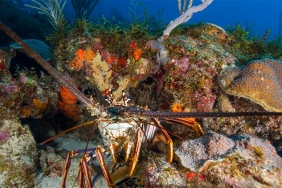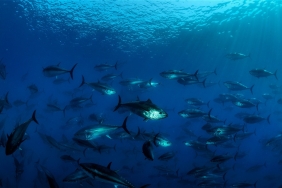JOINT ACTION, PICKING UP PLASTIC WASTE AT PALOH TURTLE NESTING BEACH
As one of the marine conservation areas in West Kalimantan, Paloh Coastal and Small Island Conservation Area (KKP3K) is a vital sea turtle nesting beach. Every year, around 3,700 turtles come to lay their eggs on this beach, especially the Green Turtle (Chelonia mydas).
Beach cleanliness is essential because plastic waste carried by ocean currents can disrupt the nesting process, endanger turtle health, and damage the natural ecosystem of turtles. A clean nesting beach free of plastic debris not only supports the survival of sea turtles but also maintains the biodiversity and environmental balance of the area.
In commemoration of the National Waste Awareness Day (HPSN) 2025, the Wahana Bahari Paloh Community Group supported by WWF-Indonesia held a beach cleanup action on the Paloh Coast on February 22, 2025.
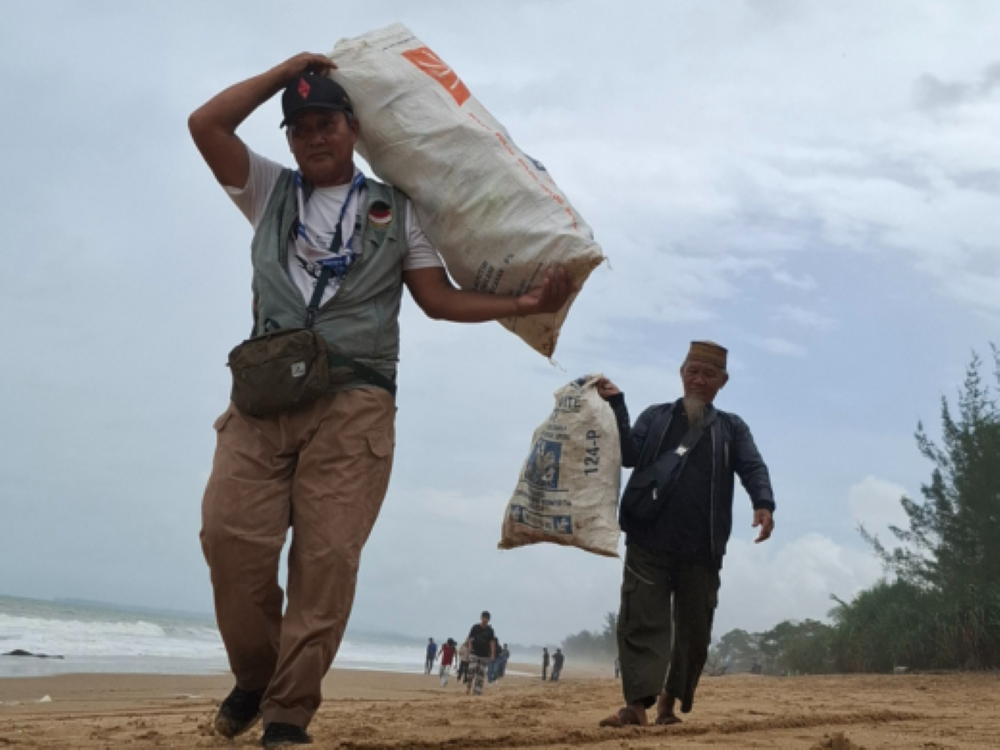
This activity involved various groups- from communities and students to college students- who united in a real effort to create a clean and safe beach environment for sea turtles. In addition to the clean-up action, there was also a recycling creation competition for students and some traditional games, such as Coconut Bowling, to increase the spirit of togetherness and creativity in protecting the environment.
That morning, 165 participants were recorded at the turtle monitoring post at Sungai Belacan Beach. The majority of the participants were students from SMAN 2 Paloh, SMAN 3 Paloh, SMK 1 Paloh, and SMK Unggulan Sambas, while the rest came from various communities such as members of the Paloh Turtle Group, Sambas Polytechnic Tourism Business Management, Sambas Polytechnic Mapala, 63Club, Kulu Kilek, Avontur Borneo, Bekesah About Nature, Summer Camp Khatulistiwa, and Sispaga SMKN 1 Paloh. Their active participation is expected to raise awareness from an early age about the importance of maintaining environmental cleanliness, especially turtle nesting beaches which symbolize the preservation of nature.
Despite the rain, the spirit of the participants remained bright. Participants managed to collect around 390.2 kg of waste, consisting of beverage bottles (243.9 kg), hard plastic waste (36.1 kg), glass waste (18.5 kg), styrofoam waste (88.3 kg), and other waste (37.4 kg).
Interestingly, the waste collected was identified as coming from 17 countries. The majority came from Indonesia, but there was also waste from neighboring countries such as Thailand, Vietnam, Malaysia, China, and countries from Africa and South America such as Zimbabwe and Curaçao. This data illustrates that waste is a global challenge that has a direct impact on the local environment.
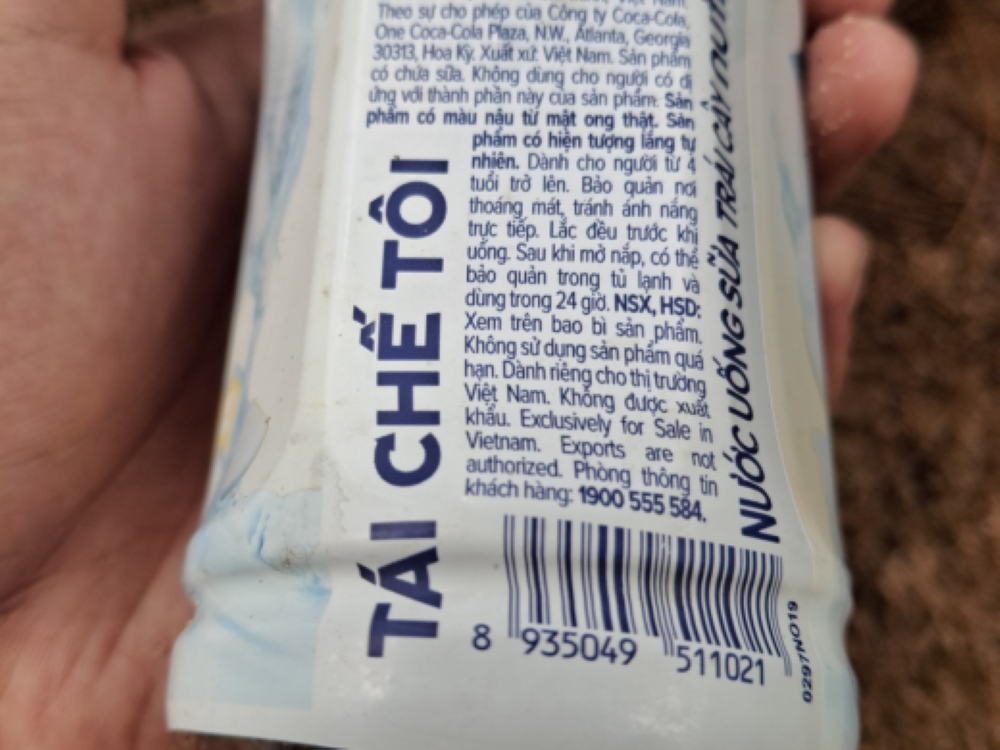
The chairman of the Wahana Bahari Paloh Community Group, Zulfian, explained that his group has consistently dealt with waste issues since 2016. "We have been working hard to tackle waste in this area, because waste not only disrupts the turtle nesting process, but also threatens the health of the environment and ecosystems that support turtle life," he said.
"We hope that in the future, we will not only clean the beach from plastic pollution, but also be able to manage the waste so that it has a higher selling value," he added.
This action is a tangible step in environmental conservation while emphasizing that clean turtle nesting beaches are key to the preservation of endangered species and healthy ecosystems. Although the waste problem cannot be solved in a short time, this activity is an important momentum to raise awareness among students.
Through the Plastic Free Ocean Network (PFON) program, in the future WWF-Indonesia will conduct monthly waste data collection training. The presence of volunteers from the community, students and school students in Paloh and surrounding areas is expected to instill the values of environmental awareness from an early age, it is hoped that the younger generation will be more active in maintaining the cleanliness of conservation areas and contributing to global efforts to tackle plastic pollution.

